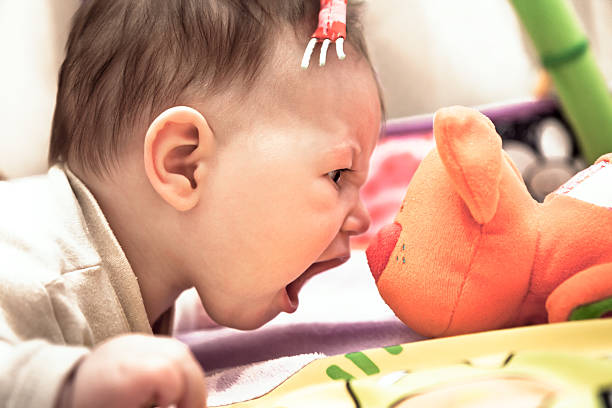As a new parent, you may be surprised to hear your baby making growling sounds. While it may seem odd or concerning, there are actually a few reasons why your baby might growl. In this article, we’ll explore the different causes of baby growling and provide tips on how to help soothe your little one.
Possible Reasons for Baby Growling
Gas or stomach discomfort: One common reason why babies growl is due to gas or stomach discomfort. The air bubbles in their stomach can push against their vocal cords, resulting in a growling sound. To help relieve gas, try burping your baby frequently and massaging their tummy.
Tummy time: Another reason why babies may growl is because they are enjoying tummy time. As they exercise their muscles and learn to control their bodies, they may express their pleasure through growling.
Communication: Growling can also be a way for babies to communicate their feelings. They may growl when they are frustrated, angry, or excited. If your baby growls when being held or during a diaper change, it may be a sign that they are not happy with the situation.
Developmental milestone: As babies start to learn to talk, they may experiment with different sounds, including growling. This is a normal part of their development and nothing to be concerned about.
How to Soothe Your Baby if They are Growling
If your baby is growling due to gas or stomach discomfort, try the following tips:
- Burp your baby frequently.
- Massage their tummy.
- Give them a warm bath.
- Use gas drops or gripe water.
- Hold them upright for 30 minutes after feedings.
If your baby is growling during tummy time, try these tips:
- Start with short periods of tummy time and gradually increase the amount of time as your baby gets used to it.
- Make sure your baby is on a soft, comfortable surface.
- Put a toy or mirror in front of your baby to distract them.
- Play music or sing to your baby to help them relax.
If your baby is growling as a way of communicating, try these tips:
- Pay attention to the context in which your baby is growling.
- Try to figure out what your baby is trying to communicate.
- Respond to your baby’s growling in a calm and reassuring way.
- Talk to your baby about their feelings.
When to Talk to Your Doctor
Growling is a normal part of baby development and is usually nothing to be concerned about. However, if you are worried about your baby’s growling, or if it is accompanied by other symptoms, it’s always a good idea to talk to your doctor. They can help you determine the cause of the growling and recommend any necessary treatment.
Conclusion
While baby growling may seem unusual at first, it’s actually a normal part of their development. Growling can be caused by gas or stomach discomfort, enjoyment of tummy time, communication, or as a developmental milestone. By understanding the reasons for baby growling and following the tips provided, you can help soothe your little one and support their healthy development. If you have any concerns, don’t hesitate to talk to your doctor.

